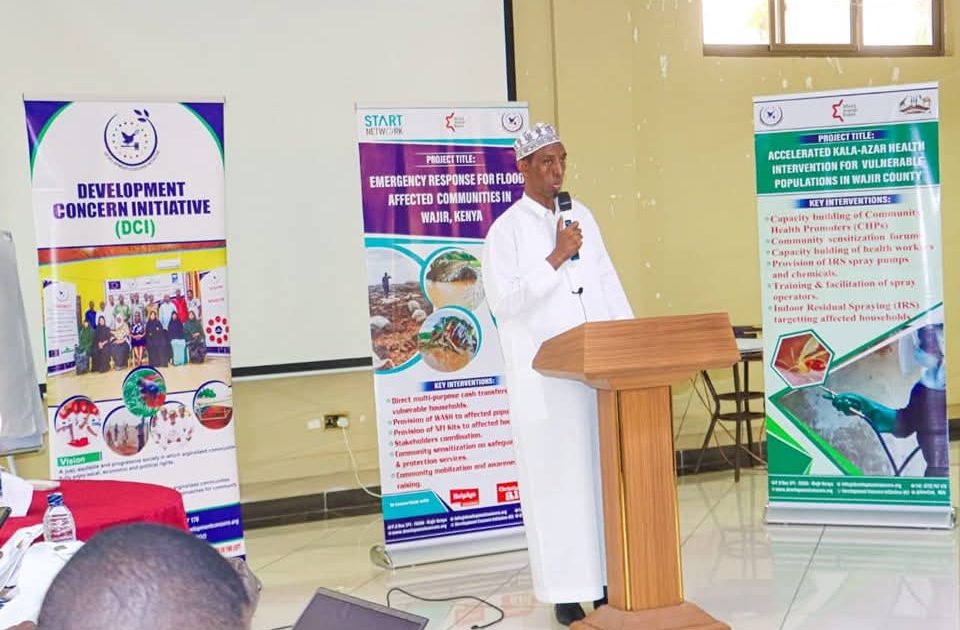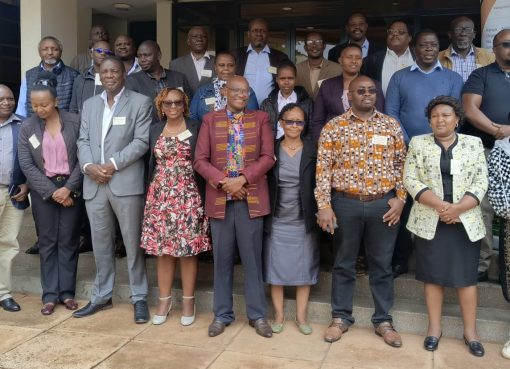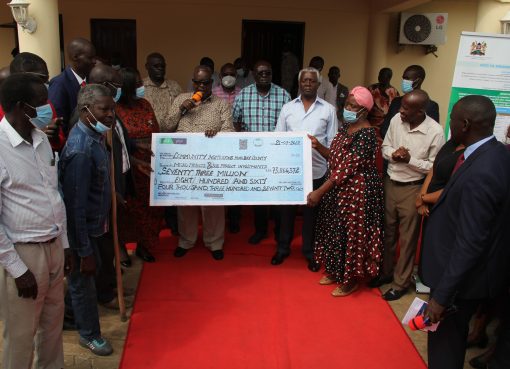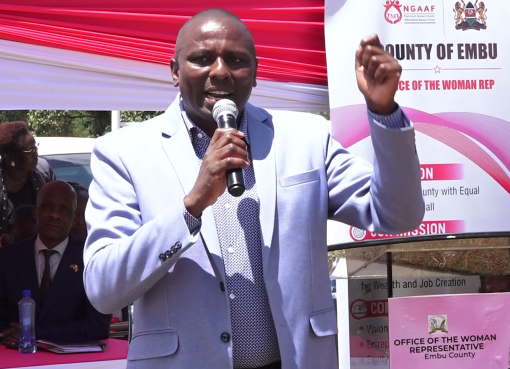Authorities in Wajir County have rolled out a rapid emergency response initiative to aid over 1,000 vulnerable households grappling with the double burden of a deadly Kalazar outbreak and the aftermath of recent flash floods.
The humanitarian programme, funded by the Start Network and implemented through the Development Concern Initiative (DCI) and Christian Aid, seeks to deliver immediate life-saving support, including cash transfers, water, sanitation and hygiene (WASH) kits, shelter materials, and other essential non-food items to affected families across the county.
Speaking during the official launch at a Wajir hotel, Deputy Governor Ahmed Muhamed acknowledged the dire humanitarian situation noting the urgent need for multi-agency collaboration to curb the spread of the disease and mitigate the ongoing suffering among residents.
“Today we are here to launch an initiative to support about a thousand households affected by Kalazar and the recent flash floods of March to May this year,” said the Deputy Governor adding: “This will include support to patients currently admitted in hospitals and communities across various parts of Wajir County.”
He lauded the Development Concern Initiative and Christian Aid organisations for their swift response, terming the intervention a critical lifeline for households displaced or left destitute by the two emergencies.
The rapid response project also includes a public health awareness component to sensitise communities on preventive measures and early treatment-seeking behaviour, in a bid to contain the outbreak.
Local leaders and health officials present at the launch called on national government agencies, humanitarian partners, and donors to scale up support in addressing the twin crises threatening the lives and livelihoods of thousands in the arid and semi-arid region.
Kalazar, also known as visceral leishmaniasis, is a life-threatening parasitic disease transmitted by sandflies, and its prevalence has surged in several parts of Northern Kenya in recent months.
Coupled with the destruction brought by flash floods that damaged homes, cut off access routes, and contaminated water sources, the situation has left many communities in dire need of urgent support.
By Hamdi Buthul





